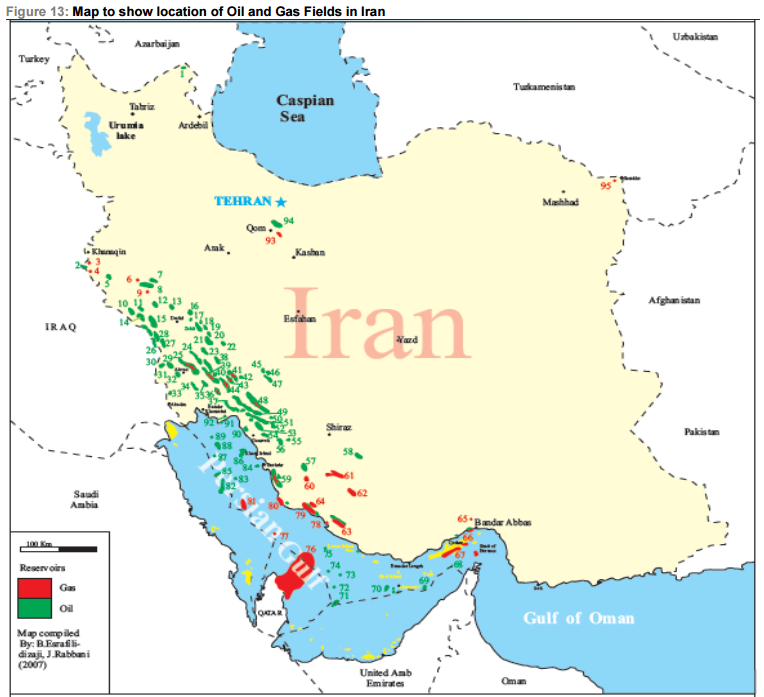Approved version of IPCs has more than 150 minor and major changes from the draft
Following the end of international sanctions against Iran in July of 2015, the Islamic Republic has ramped production up from existing fields faster than many though possible. In the year that followed the Iranian nuclear deal, Iran increased production 814 MBOPD to 3.6 MMBOPD in June 2016, but in order to reach its self-proclaimed goal of 5 MMBOPD, Iran will need the help of foreign investment, a task the newly-designed Iranian Petroleum Contracts (IPCs) are hoped to achieve.
When the terms of the IPCs were laid out in Tehran in December, 2015, hardliners in Iran began posing opposition to the contracts, saying the IPCs gave too much control of Iranian oil assets to foreign companies, something which is against the Iranian Constitution. The IPC originally required that international oil companies (IOCs) working in Iran formed a joint venture with an Iranian partner, typically the National Iranian Oil Company (NIOC), with the Iranian party acting as owner and supervising planning and operations. Even with this requirement, resistance to the IPC was so great that hardliner groups protested outside Iran’s oil ministry in February, 2016.
To help design an IPC that was more palatable to hardliners and still attractive to IOCs, a new version of the contract was drafted, and approved by the Iran’s cabinet last week.
“The draft of the general conditions, structure and patterns of the upstream petroleum and gas contracts which included more than 150 minor and major changes … was given final approval in today’s cabinet meeting,” the Iranian oil ministry’s news agency, SHANA, said.
These changes are, for the most part, minor, Dr. Iman Nasseri, a senior consultant with Facts Global Energy (FGE) told Oil & Gas 360®. The majority of the changes made from the last draft of the IPCs concern the language and definitions in the IPC, said Nasseri, but a few important alterations were made.
“The main changes are, first and foremost, with regards to the local partnerships,” said Nasseri. “In the early drafts of the contracts, this was mandatory for companies looking to bid on oil and gas upstream assets in Iran. Now that requirement is up to the discretion of the foreign company, if and when they want to bring on a local partner to the project,” he explained.
Another major change made in the latest draft of the IPC is how the specifics for each project are negotiated with IOCs. “The IPC is a framework. It does not have fees or individual terms. Those are going to be negotiated between the foreign company and the NIOC. Initially, it was supposed to be one open tender in which they put up all the fields to which they hoped to attract foreign developers, and then have the IOCs select the fields that interested them, and then have them go and bid.
“They changed the guidelines though so that it is not mandatory anymore. They have selected the most attractive fields for closed, or limited tender. They have put these aside, and they have selected a number of companies, and sent them an invitation to submit their interest in those fields, and that’s based on previous interests shown by those companies in those projects and fields.
“After that, they will move on the second-tier fields and hold an open tender.”
The third major change made to the language in the IPC is that the specific framework set forth in the document is no longer the exclusive petroleum contract available to foreign companies looking to operate in Iran. IOCs can choose to bid using an IPC, or buyback contract, or any other that NIOC feels fits the project, said Nasseri.
The future is riding on elections
While the IPC has been approved by Iran’s cabinet, much could change depending on the outcome of Iran’s presidential elections.
“This is the final framework,” said Nassari, “but there is still opposition. We believe the IPCs had to be endorsed [by the government] in order to keep moment going. They wanted to show the international community that this had not stagnated. But in reality, it make take several months before it is fully accepted by all parties and the opposition stops criticizing these negotiations.”
“In fact, one of the main critics is the Head of the Energy Committee in the Parliament. As long as that continues, we don’t expect to actually see a contract signed,” said Nasseri. “IPC is just a framework. The individual contracts will need to be signed by the Minister of Petroleum, and he may not be able to do that until all parties are finally on board.”
The growing concern that Iranian President Hassan Rouhani might lose reelection could also derail the IPCs, as well as other reform Rouhani and his party have tried to move forward while he has been in office, including the Iran nuclear agreement. And because of the analysis still being done on Iran’s oil and gas assets, it could be six months to a year before contracts are ready to be signed. If Rouhani loses reelection, and no contracts have been signed, it will be much simpler for a new president to scrap the IPC framework without worrying about international arbitration.



